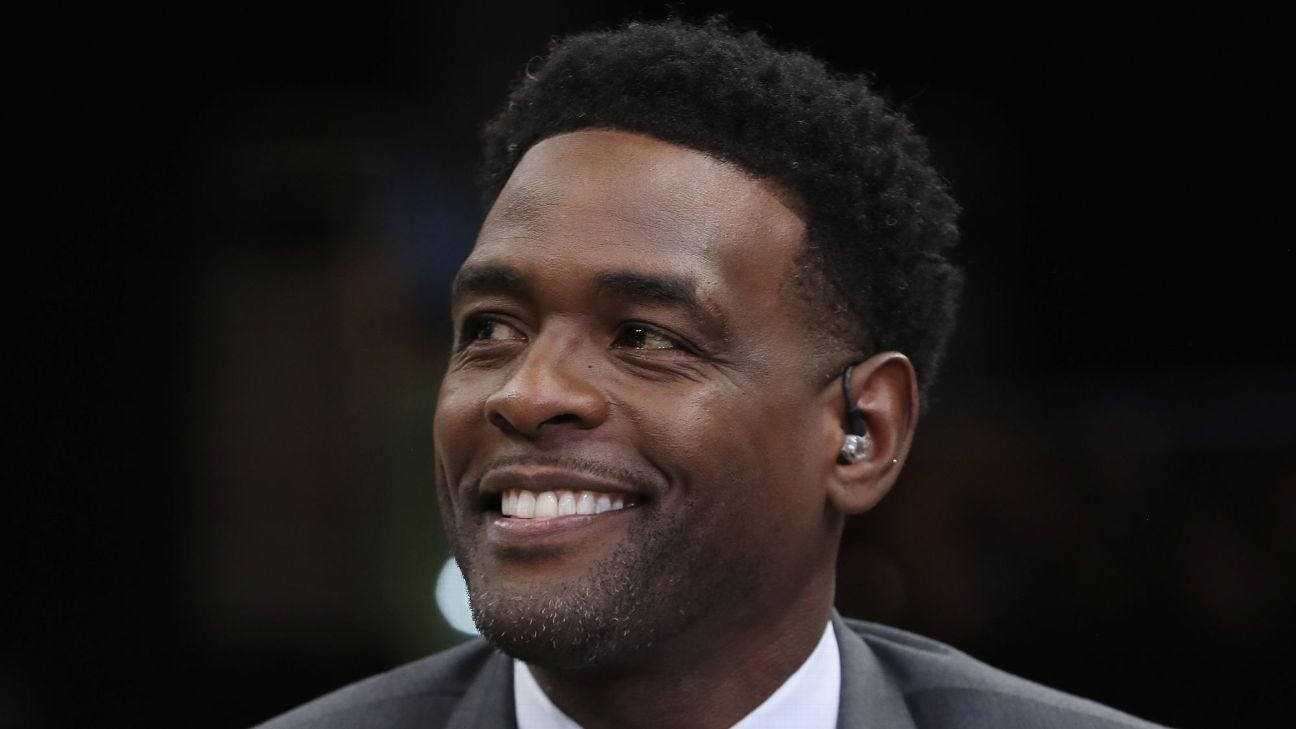After years of friction with his former school, Chris Webber said the University of Michigan took a step toward reconciliation with a simple gesture: an apology.
Webber, the Fab Five star who will be inducted into the Naismith Memorial Basketball Hall of Fame on Saturday, told ESPN that Michigan athletic director Warde Manuel privately apologized to him for the way the school handled the fallout of an investigation surrounding claims that Webber had accepted money from former booster Ed Martin.
Manuel, who was hired as athletic director in 2016, played football at Michigan from 1986 to 1989 and worked for the school in the early 1990s when Webber played in Ann Arbor.
“I was told by the athletic director at the University of Michigan that he was sorry,” Webber said during a wide-ranging interview at his home in the Atlanta area ahead of his Hall of Fame induction. “And he wasn’t even there at the time [I was playing]. He told me that he did his research and that he needs to apologize. His exact words [were] he needs ‘to apologize to the 18-year-old Chris Webber because we didn’t protect him.'”
In 2003, Webber pleaded guilty to a criminal contempt charge in federal court and admitted — after a previous denial to a grand jury — that he had repaid Martin more than $38,000 for what he said was a loan he accepted while he was a player. Martin had testified that he had given Webber and three other Michigan athletes more than $600,000 combined throughout their careers.
Following the plea deal, Michigan disassociated from Webber for 10 years, a period that ended in 2013, and stripped the former collegiate All-American’s stats from its record books. While the four other members of the Fab Five — Juwan Howard, Jalen Rose, Jimmy King and Ray Jackson — attended Michigan’s matchup against Louisville in the 2013 national championship, Webber had to watch from a suite due to the disassociation.
In recent years, the tension between him and the university has ebbed. Three years ago, he was on the sideline for a Michigan football game following an invitation from coach Jim Harbaugh. Webber said he was emotional as the crowd cheered.
Webber said he will discuss his experience at Michigan in his upcoming book, “By God’s Grace,” which he believes will allow everyone to move forward when it is released later this year.
“I was the lowest-hanging fruit,” Webber said about the school’s investigation. “I had the biggest name. I knew that then, so hopefully some of the things in [my book] will reveal what happened, how things happened, and hopefully just life can go [on] or it can just get back to normal in that way. Hopefully, once we address all this good stuff, we’ll get back to it.”
But Webber’s relationship with former teammate and ESPN personality Rose is apparently still in flux. In 2014, Rose said Webber should “apologize” for everything that happened at Michigan, and Webber did not participate in the 2011 Fab Five documentary that was spearheaded by Rose.
When Webber was selected for the Hall of Fame, however, he and Rose had a conversation on ESPN. Still, Webber said the two need to talk again before they can move forward.
“There has been that rift because Jalen has decided to talk and I’ve said we should handle everything behind the scenes,” Webber said. “It was just, it’s an honor system. It’s a code. And he knows what that is, because that’s what we built the Fab Five on, and he did not adhere to that code multiple times. … All it takes is a 30-second conversation.”
Webber didn’t enjoy waiting eight years to get into the Hall of Fame but said the honor validates a decorated career in which he averaged 20.7 points and 9.8 rebounds per game over 15 NBA seasons and won the 1994 Rookie of the Year award.
He said he’ll tell his children that “Daddy was a bad man.”
Webber said he is also proud of the resilience he has displayed throughout his life. After calling a timeout Michigan didn’t have in the final seconds of the 1993 national title game loss to North Carolina, Webber said he could barely stand in the locker room. But the blunder, he said, gave him an opportunity to grow.
“From speaking, all the things I’ve done, I can show you so much feedback that I have from inspiring people from the timeout,” he said. “I want people to know that the timeout didn’t crush me.”
